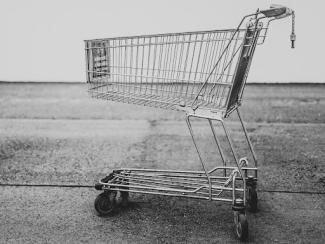
In recent years, corporations, lawmakers, and large media outlets have pushed an anti-shoplifting narrative. Retailers like Walmart and Target closed stores, complaining of organized retail crime. Some lawmakers blame it on bail reform, demanding harsher punishment.
While isolated incidents have gone viral, no reliable data indicate a shoplifting or organized retail crime wave. New bail reforms don’t offer enough data to support lawmakers’ claims.
And while lost inventory rates may increase for stores, factors like poor inventory management, inflation, and raised retail sales matter.
Meanwhile, decades of research tell us harsher punishments won't end theft, and Black people are already disproportionately criminalized for organized retail theft.
But whether a surge exists or not, why is shoplifting a priority?
Corporations “suffer” from the chaos of consumer theft. We allegedly need police and the law to end that suffering. But what about the suffering of those who can’t afford to buy what they need? Or the suffering of workers these corporations exploit?
While corporations lose a small percentage of their billions a year, U.S. workers have $50 billion stolen from them yearly, from unpaid overtime and illegal deductions to confiscating tips and misclassifying employees.
Under capitalism, those with wealth and racial privilege intend to keep us at the bottom of their hierarchy. But every time we fail to fall for copaganda like this, we resist.